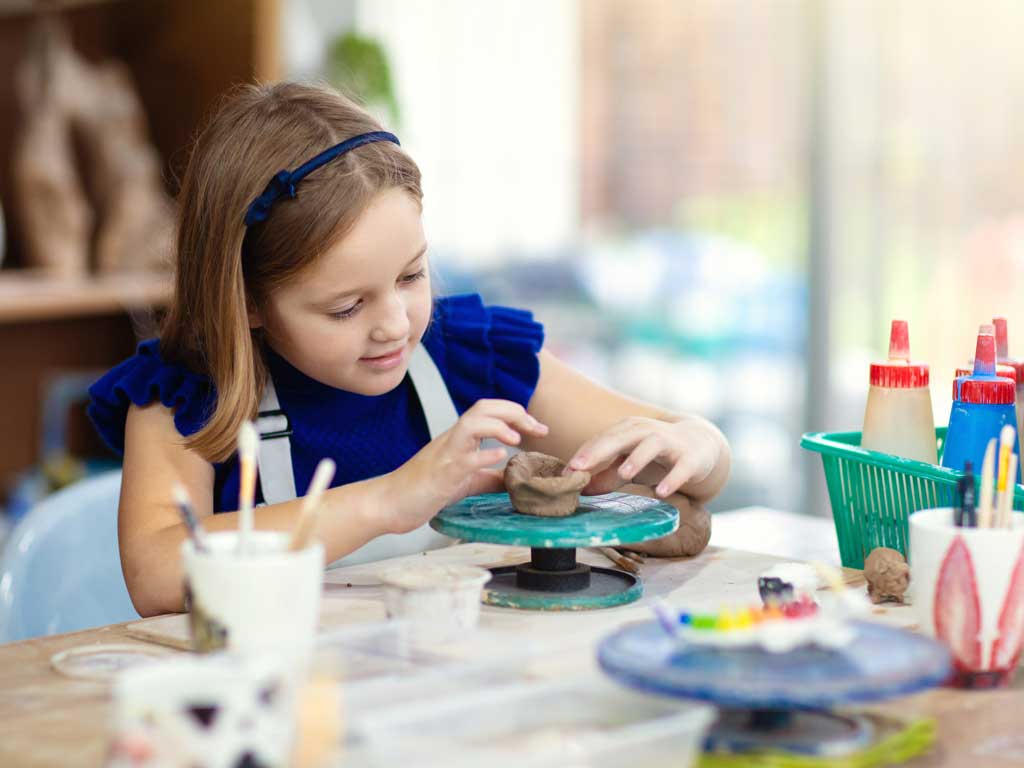by Jamie Lober
Every child is special and unique and so are his interests. Take the time to get to know your child and discover what he enjoys and likes to do both alone and with friends. “Appropriate interests can be anything that will help your child grow, learn, socialize, stretch his mind and body and expose him to new people, places and skill sets,” said Katherine Gardner-Bougard, nurse manager at the Family Treatment Center at The Queen’s Medical Center. You should notice your child having interests starting at an early age. “By the time a child is 2 or 3 year-sold a parent can tell anyone what their child’s favorite book, toy, game and songs are,” said Gardner-Bougard.
Champion Your Child’s Interests
Once you figure out what your child’s interests are, do your best to support him in participating in those activities and advancing. “If your child loves to color, you can take him to an art gallery or enroll him in an art class and if your child loves volcanoes, you can read him books on the topic, take him to a museum or bring him to the lava tubes,” said Gardner-Bougard. If your child is shy, you may want to invite a friend over or to go out with you to see what he likes to do. Having a buddy with him may boost his confidence, improve his social skills and make him feel more comfortable.

Be Active
Physical activity is a part of healthy growth and development. “Team sports are a petri dish for kids to engage in prosocial skills like socializing, helping others, playing by the rules, cooperation and accountability,” said Gardner-Bougard. Even individual sports like swimming or golf will give your child a chance to connect with others who share his interest. Other common hobbies include arts and crafts, baking and playing a musical instrument. “The opportunities children have to explore the world around them through hobbies or other interests gives them a playing ground to deepen curiosity, foster creativity and develop critical thinking skills,” said Gardner-Bougard.
Moderation Is the Key
Sharing your child’s passions with him is about quality time and not always quantity of how much you can do together. You do not want to overwhelm him and at the same time want to make sure he continues to try new things. “Forcing your child into an activity he clearly does not want to do can backfire,” said Gardner-Bougard. When you expose him to endless possibilities he is sure to add to his list of interests all the time. Never be pushy or add pressure. Younger kids who feel too much pressure cannot always communicate that they feel stressed and instead may be irritable or anxious. The outcome of too much pressure is typically a child refusing to engage in the activity and being in a power struggle with the parent so you want to be mindful.
Be a Role Model
The top way to ensure that your child has healthy interests is by having your own. “Parents who set a good example and role model healthy interests are teaching their children what to value like exercising regularly, cooking healthy foods, enjoying the outdoors by hiking, camping, surfing, being in a book club or volunteering in the community,” said Gardner-Bougard. As your child grows up you can do all of these activities with him.

Evaluate Your Child
Remember there are no wrong interests as long as they are positive. “Children will naturally gravitate towards activities they have fun doing even if it is something that does not come easily to them,” said Gardner-Bougard. Sometimes trying to stay busy together and minimizing time spent with electronics can help your child on his quest to find his passions. Studies find that the world is increasingly interconnected so it is good to recognize ties between technology, art and social sciences.
Commend a Job Well Done
Sometimes your child will succeed and other times he may fail. Both are okay and it is important to let him know that. “Children are very resilient as they learn and grow in the face of challenges,” said Gardner-Bougard. Your outlook will play a big part in how your child copes. “Parents should try to reframe ‘failures’ as opportunities for their child to build his strengths, develop his weaknesses and learn that not everything comes easily,” said Gardner-Bougard. Practicing any skill usually makes perfect with some time and dedication. “Most adults understand that we have to work hard to become truly good at something but children have to learn that concept through that ups and downs of honing their talents,” said Gardner-Bougard. Be patient and you will get there and have a child who is passionate about his hobbies and excels at them.





